The impressive images were processed by a citizen scientist.
. De Pater led these Jovian observations with Thierry Fouchet, a professor at the Paris Observatory, as part of Webb's Early Release Science program."It's really remarkable that we can see details on Jupiter together with its rings, tiny satellites, and even galaxies in one image," she added.
The second image is a close-up of Jupiter, which used three filters to capture the details of its stormy atmosphere, including the glowing auroras. "The brightness here indicates high altitude — so the Great Red Spot has high-altitude hazes, as does the equatorial region," said Heidi Hammel, Webb interdisciplinary scientist for solar system observations and vice president for science at AURA."The numerous bright white 'spots' and 'streaks' are likely very high-altitude cloud tops of condensed convective storms.
You might be wondering why the colors of the images are not what we're used to seeing when it comes to Jupiter. Webb observes light in the infrared range, not the visible light range, so the colors of the two images are not the colors we observe with the naked eye. The infrared data has been mapped onto the visible light spectrum, so these images are"false-color," not"true-color.
United States Latest News, United States Headlines
Similar News:You can also read news stories similar to this one that we have collected from other news sources.
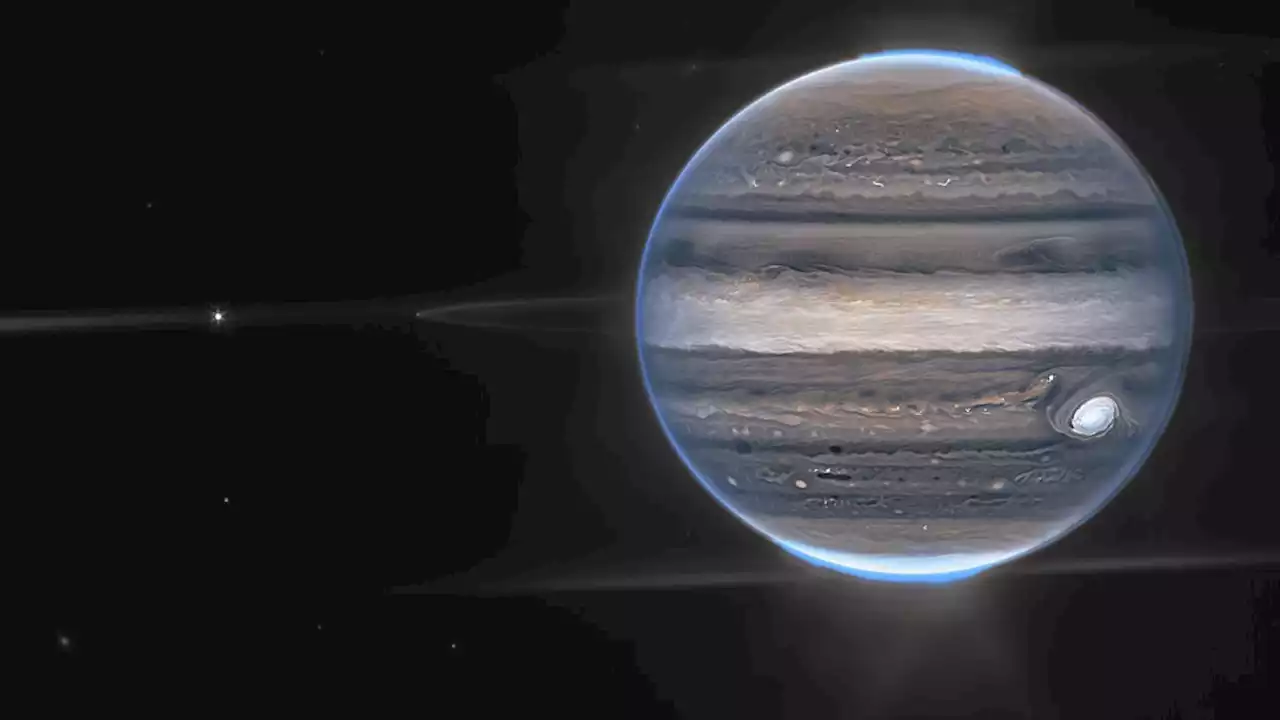 Jupiter glows in pictures from NASA's new telescopeNew photos from the James Webb telescope highlight Jupiter's auroras.
Jupiter glows in pictures from NASA's new telescopeNew photos from the James Webb telescope highlight Jupiter's auroras.
Read more »
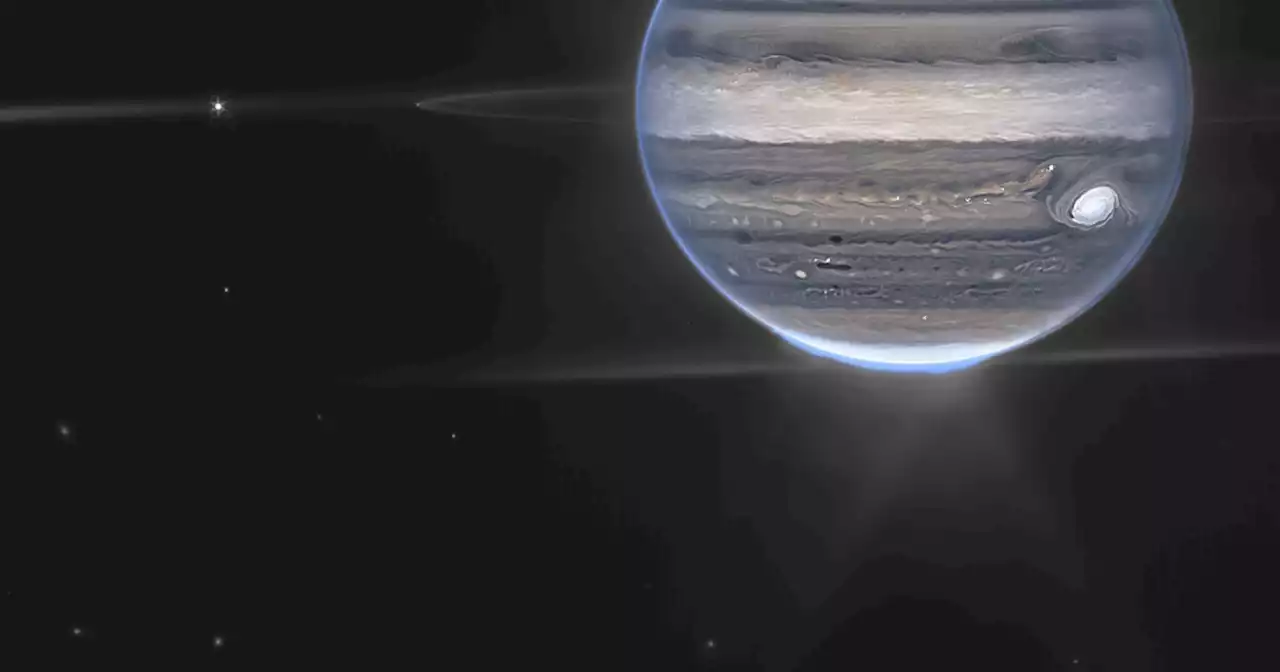 SEE IT: NASA releases new images of JupiterNASA released new images of Jupiter from its James Webb Space Telescope showing its rings and auroras occurring at its north and south poles.
SEE IT: NASA releases new images of JupiterNASA released new images of Jupiter from its James Webb Space Telescope showing its rings and auroras occurring at its north and south poles.
Read more »
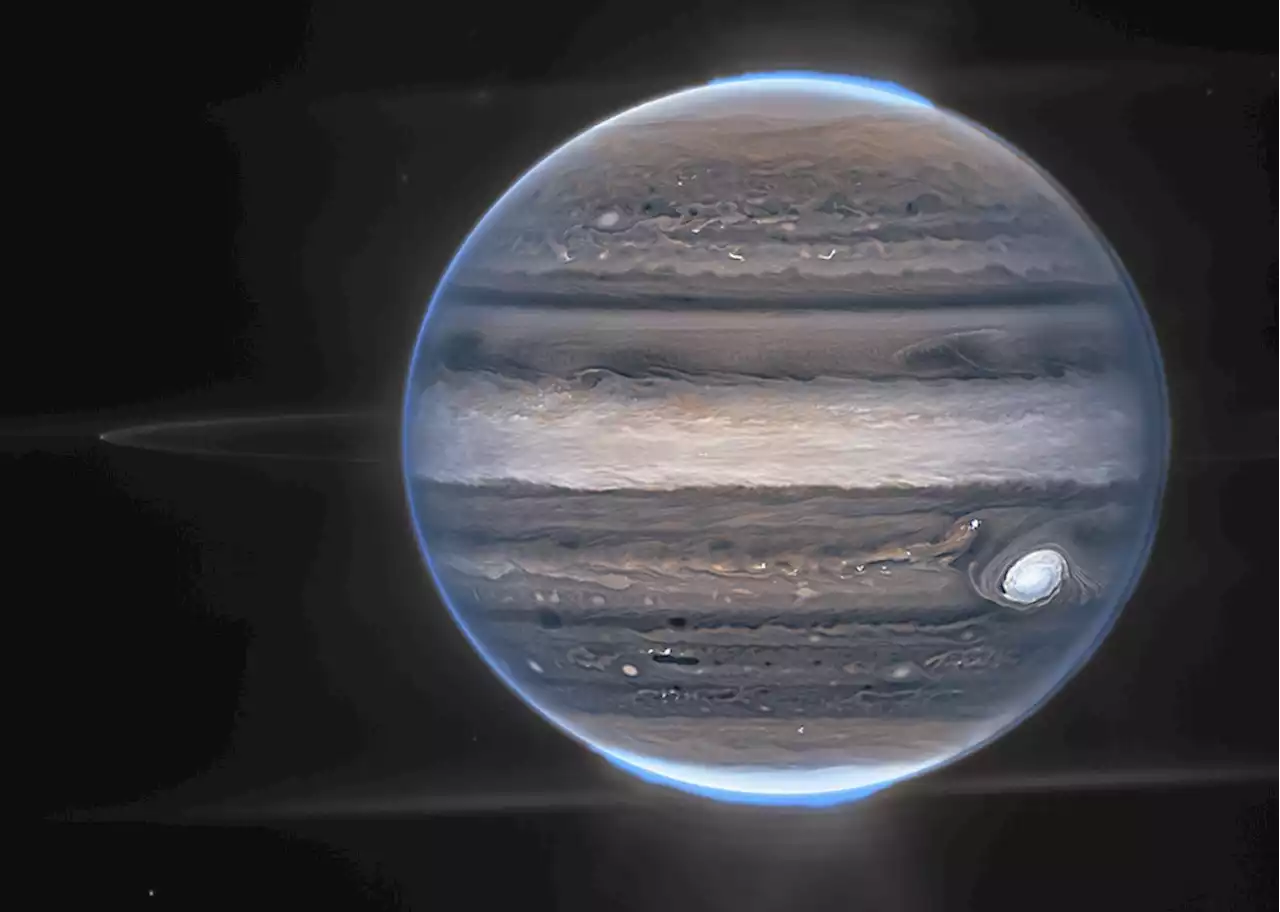 This is Jupiter as you’ve never seen it before | Digital TrendsThe groundbreaking James Webb Space Telescope has produced an extraordinary image of Jupiter using its advanced infrared camera.
This is Jupiter as you’ve never seen it before | Digital TrendsThe groundbreaking James Webb Space Telescope has produced an extraordinary image of Jupiter using its advanced infrared camera.
Read more »
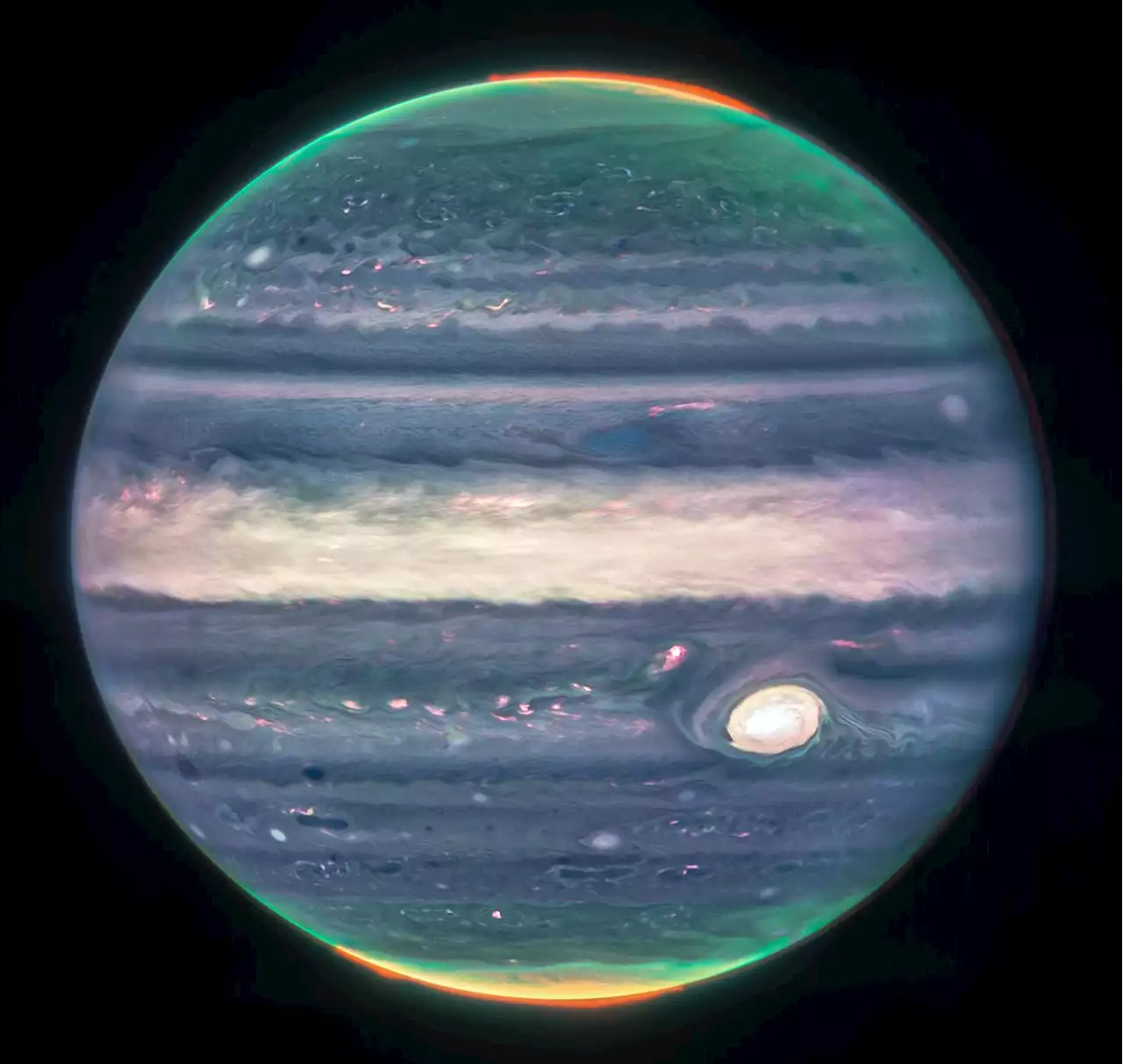 Incredible Webb Space Telescope Images of Jupiter Showcase Auroras, Hazes, Moons & RingsJupiter has a lot going on: giant storms, powerful winds, auroras, and extreme temperature and pressure conditions. Now, NASA’s James Webb Space Telescope has captured new images of the massive planet. Webb’s Jupiter observations will give researchers even more clues to Jupiter’s inner life. “We
Incredible Webb Space Telescope Images of Jupiter Showcase Auroras, Hazes, Moons & RingsJupiter has a lot going on: giant storms, powerful winds, auroras, and extreme temperature and pressure conditions. Now, NASA’s James Webb Space Telescope has captured new images of the massive planet. Webb’s Jupiter observations will give researchers even more clues to Jupiter’s inner life. “We
Read more »
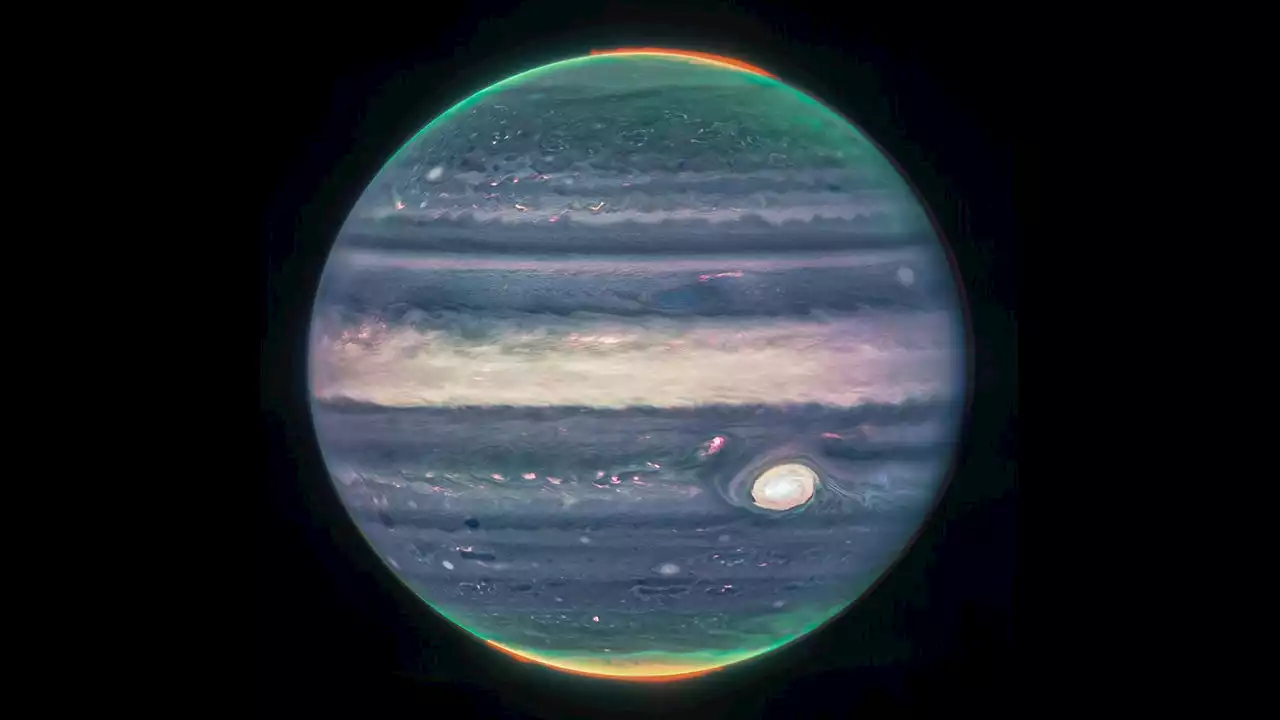 Photos: New space telescope shows Jupiter's auroras, tiny moonsThe world’s newest and biggest space telescope is showing Jupiter as never before, auroras and all.
Photos: New space telescope shows Jupiter's auroras, tiny moonsThe world’s newest and biggest space telescope is showing Jupiter as never before, auroras and all.
Read more »
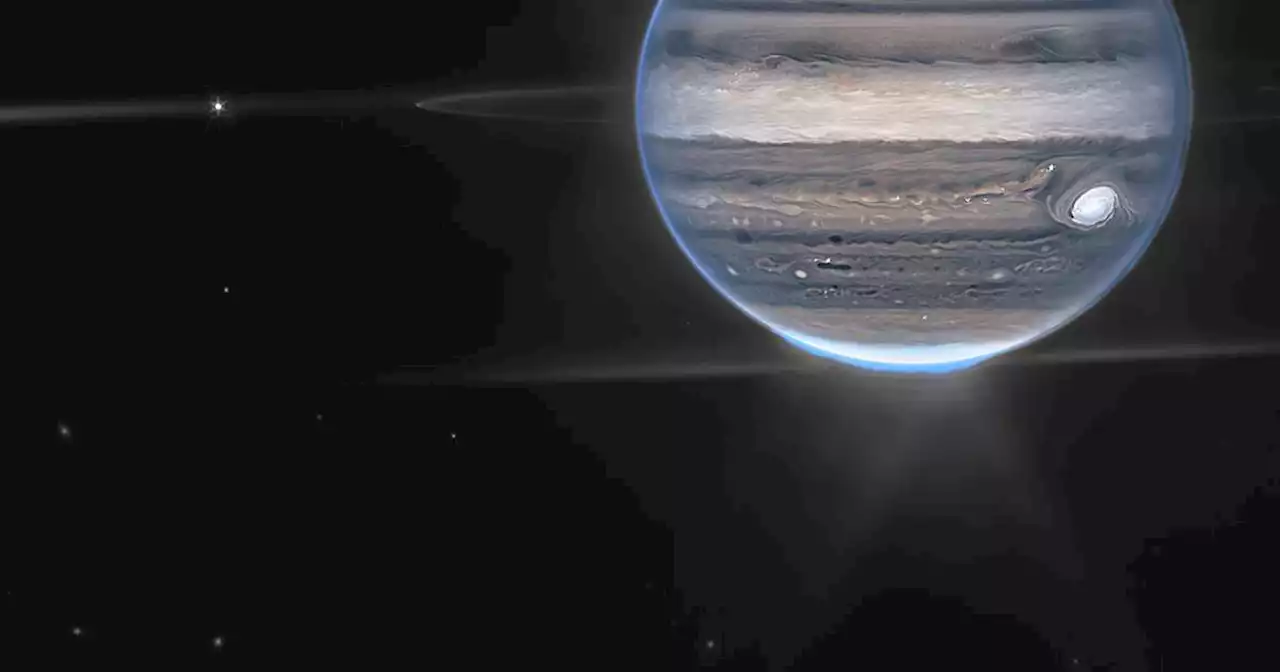 New space telescope shows Jupiter’s aurorasOne wide-field picture is particularly dramatic, showing the faint rings around the planet, as well as two tiny moons against a glittering background of galaxies.
New space telescope shows Jupiter’s aurorasOne wide-field picture is particularly dramatic, showing the faint rings around the planet, as well as two tiny moons against a glittering background of galaxies.
Read more »
